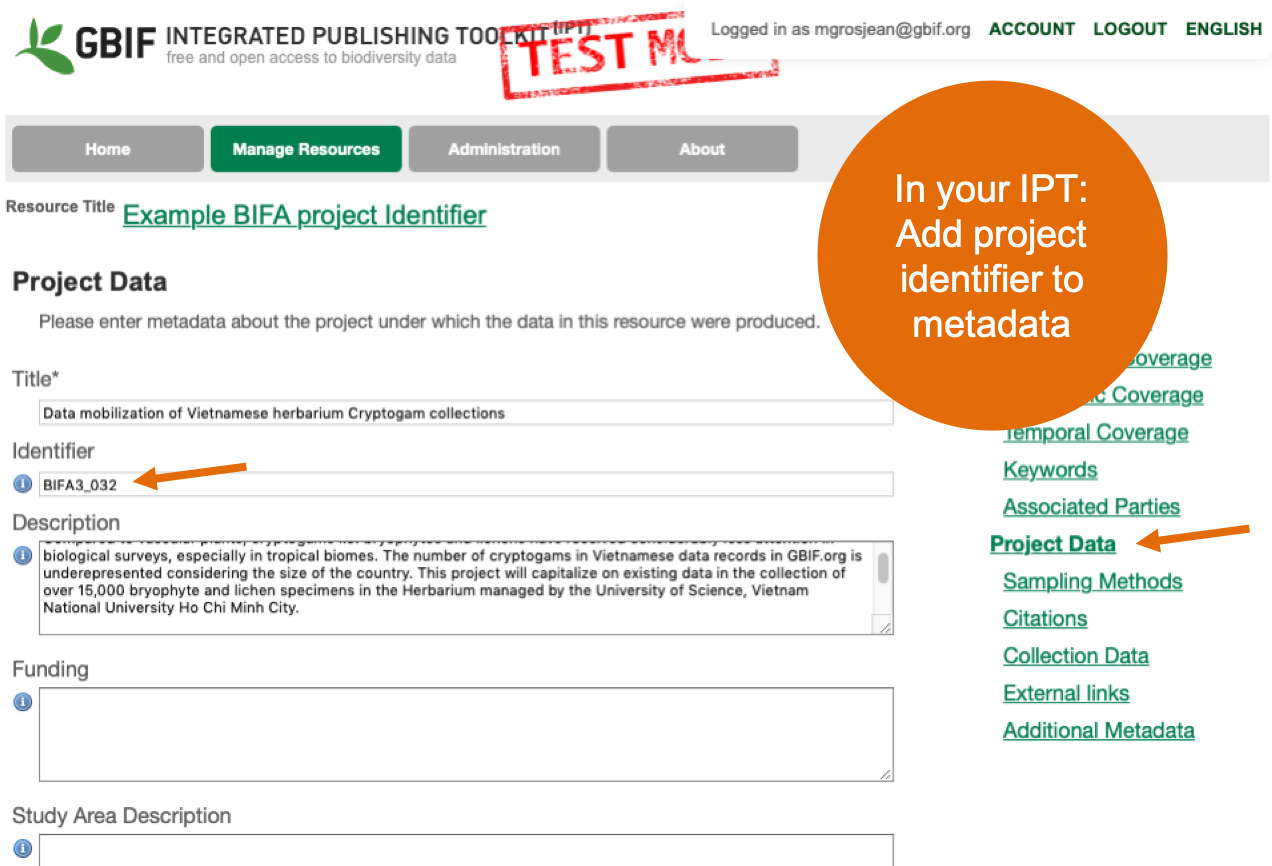GBIF data quality requirements
| In this section, you will review GBIF’s data quality requirements. |
Publishers play an essential role not simply in sharing datasets, but also in managing their quality, completeness and usefulness and ensuring their integration and value within GBIF’s global knowledge base.

To share data through GBIF.org, publishers typically have to collate or transform existing datasets into a standardized format. This work may include additional processing, content editing and mapping a dataset’s content into one of the available data transfer formats, as well as publication through one of the available data publishing tools, such as GBIF’s free, open-source Integrated Publishing Toolkit (IPT).
Once published, GBIF’s real-time infrastructure ‘indexes’ or ‘harvests’ new datasets, integrating them into a common access system where users can retrieve any and all data through common search and download services. As datasets are indexed, GBIF.org performs additional checks, interpretation and conversion routines to ensure that data are interoperable and comply with minimum standards of data formats, data quality and fitness for use. Many criteria for quality and usability of data, however, are best and most easily handled when addressed at their source: the individual dataset.
Publishers thus play an essential role not simply in sharing datasets, but also in managing their quality, completeness and usefulness as well as ensuring their integration and value within GBIF’s global knowledge base. Learn more about data quality requirements and recommendations for:
In practice, we encourage those responsible for publishing data to get acquainted with the expected data formats and content requirements as early as possible in the process (see also the pre-configured GBIF Excel templates with required and recommended terms for occurrence-only datasets, checklists, and sampling-event datasets, all available with example data). Doing so will save a lot of effort that may be needed at later stages, for example, in adding data conversions, capturing information for required or strongly recommended fields, or performing and addressing final pre-publication data-quality checks.
| BID and BIFA projects are required to include their projectID on published datasets as part of the dataset metadata. This allows datasets to be linked to project pages. |
